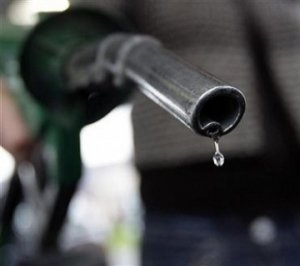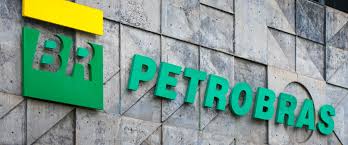
Bisi Daniels
Lagos — When sound economic decisions run into political brick walls, the impact generates confusion of unimaginable proportions and, sometimes with it, loss of direction
If Senate President Ahmed Lawan had used the press centre or the briefing room at the State House, Abuja after his meeting with President Muhammadu Buhari, he would perhaps have used the same seat the Minister of Finance, Budget and National Planning, Zainab Ahmed used last year to tell Nigerians about the Federal Government’s decision to, at last, pick the can which has been kicked down the road by various governments.
Of course, the correspondents would also have gleefully grilled him about the seeming contradiction.
Lawan, as he is wont to do because of “the pressure of time,” chose to speak with the NTA when he left the meeting with the President and he seemed to have something urgent to say in a hurry.
“President Muhammadu Buhari did not direct anyone in his administration to implement the removal of petroleum subsidy,” Lawan kicked the can violently down the road.
Nigeria went dumb when the news was reported. He had thrown many people, including the gentle Finance Minister, under the bus in the public glare instead of calling a quiet meeting to discuss the new government thinking for a formal announcement to be made.
But experts say in the psychology of power, the person who is seen to have the ears of the boss, sometimes looks more powerful than usual the pollution of reported speech.
As recently as October 2021, Ahmed had announced the federal government’s decision to provide for petrol subsidy in the 2022 budget, which Lawan had seen, only for the first six months of 2022 as the government looked towards complete deregulation of the sector.
In a way, she was only echoing what the Petroleum Ministry and the Nigerian National Petroleum Company Limited (NNPC) had said or openly wished repeatedly.
Also, for the first time since the inception of his government in 2015, President Buhari, while presenting a N16.39 trillion Appropriation Bill for the 2022 fiscal year to a joint session of the National Assembly, acknowledged how much petroleum subsidy had eroded national revenues, making it impossible for the country to adequately fund its annual budget, despite significant appreciation in crude oil prices.
He had also signed the Petroleum Industry Bill which freed the NNPC from paying fuel subsidy.
New Intelligence?
Sources who claimed to understand Lawan’s urgency attributed it to fresh intelligence indicating that removing the subsidy in the country’s current mood could detonate prolonged protests and possible violence into the election year. It could also cost the ruling All Progressives Congress (APC) the elections.
One analyst in Abuja said you don’t need to be a security operative to know that Labour protests would have been an opportunity for people who have grievances with the government and opportunists to replicate the “Occupy Nigeria” protest that followed ex- President Jonathan’s subsidy removal.
“There was the possibility of prolonged crisis, going as far as to the end of this administration,” he said
Lawan must have alluded to some of that threat when he told the NTA, “Many of us are very concerned with the recent agitations, protests and many citizens were so concerned. Our constituents across the country are very concerned that the federal government will remove the petroleum subsidy. And for us, as parliamentarians, as legislators representing the people of Nigeria, this must be of interest to us.
“And we have just finished our recess; we had gone home to our constituencies and senatorial districts. And we felt the pulse of our people. But obviously, leaving the heavy yoke of the subsidy around the neck of government is going to be a burden for the next government, which would also have security challenges to deal with.”
“I hope people, who desperately want to take over the Villa in 2023, can figure out the enormous challenges they face,” one analyst said last week. “If it is feared that fuel subsidy protests could cost them the election, they should equally understand that enormous legacy problems could make the next government fail.”
Already, with oil prices flying so high, sometimes above $90 a barrel, with the possibility of hitting $100, the argument that the People’s Democratic Party (PDP) Government frittered the proceeds of an oil boom during their time has been rendered lame.
That Tuesday, Lawan left Information Minister Lai Mohammed scrambling for a convincing explanation of the Lawan-Ahmed contradiction in order not to make the Federal Government look bad.
He said the following day he was going to consult with all the ministries and agencies handling the issue to know the update.
The confusion appeared to have been cleared somehow by the National Economic Council, which at its first meeting of the year, under the chairmanship of Vice President Yemi Osinbajo, announced that the decision on the removal of the subsidy on petroleum will be made in June when the provision for its payment in the 2022 budget expires.
Even at that point, there was the need for a formal government statement to clear the confusion. Lawan must have seen the need himself when he convened a high-level meeting at the National Assembly.
Lawan’s meeting endorses can kicking
Eventually, Lawan convened a meeting at which the Federal Government made a formal announcement of the suspension of plans to remove fuel subsidy, despite the huge hole it creates in government finances.
Finance Minister Ahmed said the Federal Government had initially planned to remove subsidy on petroleum products from July this year but it has discovered that the timing is problematic.
She explained: “The provision was made sequel to the passage of the Petroleum Industry Act which indicated that all petroleum products would be deregulated. Sequel to the passage of the PIA, we went back to amend the fiscal framework to incorporate the subsidy removal.
“However, after the budget was passed, we had consultations with a number of stakeholders and it became clear that the timing was problematic.
“We discovered that practically, there is still heightened inflation and that the removal of subsidy would further worsen the situation and impose more difficulties on the citizenry.
“Mr President (Muhammadu Buhari), does not want to do that. What we are now doing is to continue with the on-going discussions and consultations in terms of putting in place a number of measures.
“One of these is the roll out of the refining capacities of the existing refineries and the new ones which would reduce the amount of products that would be imported into the country.”
On his part, Lawan appealed to the leadership of the Nigeria Labour Congress (NLC) and the Trade Union Congress (TUC) to shelve their planned industrial action over subsidy removal as it has become unnecessary.
In another post-announcement action, Minister of State for Petroleum Resources, Timipre Sylva, who had said it was clear for the “blind to see and the deaf to hear” that the fuel subsidy would not be removed, later convened a meeting with oil marketers in the downstream sector to perfect plans for the full deployment of autogas in filling stations and the conversion of 200,000 commercial vehicles to run on gas this year.
Going Back to the future
At the tail end of the President Olusegun Obasanjo administration in 2007, the federal government sold two of the country’s refineries to Aliko Dangote and some other investors for $750m because they were old and less functional but it was strongly criticized by labour leaders and the civil society with threats of protests.
Due to “pressure”, his successor, the late Umaru Yar’Adua, reversed the sale.
Obasanjo said in an interview later that not only did his successor cancel the sale, he also refunded the $750m paid by the investors.
Obasanjo regretted that instead of the Yar’Adua administration consolidating the sale so that the investors could turn around the fortunes of the refineries, he succumbed to pressure and reversed the sale of the oil facilities.
He said, ” I went to him and said, ‘why did you do this? He said it was because of pressure. So, the pressure of some people was more important than the interest of the whole nation.’
For obvious reasons of corruption, the country has had a strong preference for recurring Turn Around Maintenance of the refineries. Today, all four of them are virtually dead.
Today, it is the same Dangote, whose 650, 000 daily capacity refinery the country is looking forward to for reduction of fuel imports.
Also, today, Labour has set as one of its conditions for peace, functional refineries. If the sale of refineries to Dangote and others had not been reversed, the country would have perhaps by now had a stable pump price.
As we clamour for the new Dangote refinery to start production, we seem to have ignored that the refinery would not subsidise the prices of its products.
The new proposals
There are still lingering subsidy issues. Federal Executive Council (FEC) meeting presided over by President Buhari later announced the receipt of a bill of N3 trillion from NNPC as payment for petrol subsidy in 2022.
Again, Ahmed explained that the NNPC bill is because N443 billion was allocated for fuel subsidy in 2022 from January till June.
“What this means is that we have to make incremental provision of N2.557 trillion to be able to meet subsidy requirement which is averaging about N270 billion per month,” she said.
An euphoric Labour called off their planned protest, and have been dictating conditions for peace, including functional refineries.
Also briefing newsmen at the Aso Villa where Ahmed spoke after the FEC meeting, Sylvia said the Federal Government was going to propose an 18-month extension of the implementation of the Petroleum Industry Act, which legislates the removal of fuel subsidy.
Government thinking is that the window allows negotiations on removing subsidy while allowing some of the refineries, including Dangote’s, to come on stream.
Over the years, the eternal turnaround maintenance of the government’s refineries have, at best, festered corruption and refused to inspire confidence.
Although it is still a wait-and-see issue, confidence seems to have been found in the assurance of Mele Kyari, the Group Managing Director of the NNPC that things would be done differently.
Going by his track record on the job and his credibility, Kyari sounds believable.
But it is not all about body language. Announcing the programme for total rehabilitation of the Port Harcourt Refining Co. Ltd.’s refining complex, he said, “We are going to get an O&M contract; NNPC won’t run it.
“We want to try a different model of getting this refinery to run. And we are going to apply this process to run the other two refineries.
“The plan, ultimately, is to get private partners to invest in the refineries and get them to run on the same model used by Nigeria Liquefied Natural Gas Ltd, where shareholders would be free to decide the future of the refineries to ensure their long-term operation.”
Perfect! The largely effective NLNG model limits government interference and also has almost zero tolerance for corruption.
The model will be a huge relief, but like the Dangote refinery, it raises the issue of product pricing, which seem to have been muted by now.
With the new variables coming into the equation, 18 months is long enough to resolve all outstanding issues around the removal of fuel subsidy; but it is also enough for government to fumble with the excuse of socio-political considerations
What is clear now is that this government and the next cannot continue to turn a blind eye to the huge opportunity cost of fuel subsidy.
Sound economics often suffers socio-political impasse but it eventually triumphs – after long avoidable suffering of people.
*Daniels is an author and journalist in Lagos
Follow us on twitter



